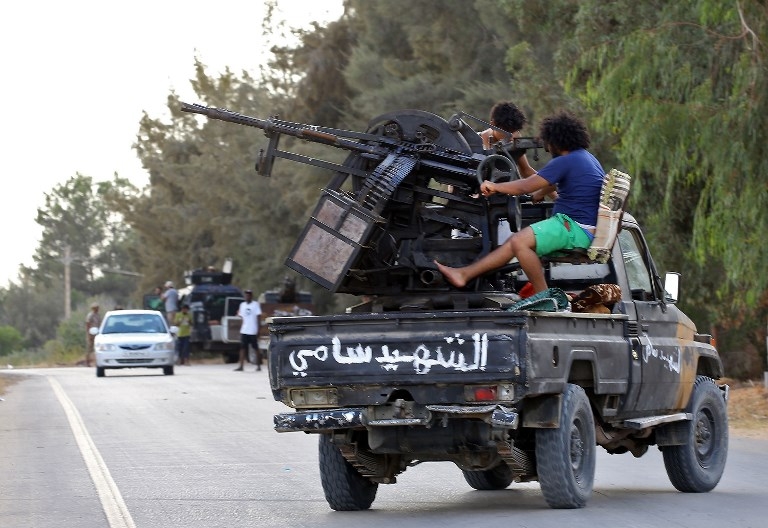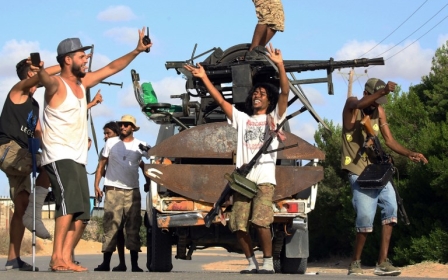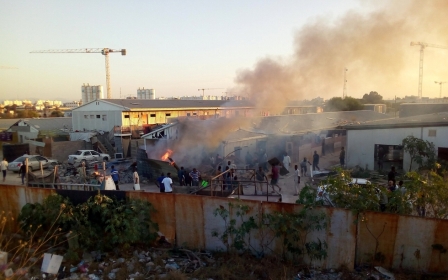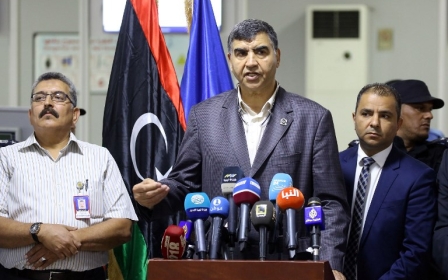Libya’s GNA replaces interior minister in security reform drive

The head of Libya's UN-backed government on Sunday reshuffled key cabinet posts, replacing the interior minister amid efforts to bolster security in the wake of fighting around Tripoli.
"Fathi Bashagha is in charge of the interior ministry," said a decree signed by Fayez al-Sarraj, who leads the Government of National Accord (GNA).
Bashagha - an elected lawmaker who had boycotted parliamentary sessions - succeeds Abdessalam Achour, who had held his position since February 2018. The new interior minister comes from Misrata, a city with powerful militias 200km east of Tripoli.
Ali Issawi, a former Libyan ambassador to India, was appointed economy and industry minister, replacing Nasser el-Derssi, while Faraj Abderrahmane Boumtari becomes finance minister, succeeding Oussama Hamad.
The United Nations mission in Libya wished the new ministers "success in their new roles" and said it stood ready to support them in implementing new security arrangements in Tripoli, AFP reported.
A month of clashes between rival militias has left more than 100 dead south of Tripoli, while the capital's only working airport on the eastern outskirts of the city was also temporarily shut before the government in late September announced a ceasefire deal.
Several ceasefires have been agreed and collapsed since the fighting began again on 26 August. This has been the latest round of recurring battles for dominance in the capital city, which is unsurprisingly seen as key to Libya's competing authorities because of its financial and strategic importance.
The Washington Post said that from the beginning, the GNA has been largely reliant on militias to exert control, and many Libyans have seen it as an authority imposed on them by outside powers.
Today, those militias are battling for the capital, according to the Post. Many of them have linked up with other armed factions to form larger, more-powerful armed groups that some analysts have dubbed “super militias”. Their goal, analysts say, is to assert political control, seize territory and wrest economic spoils, including a share of one of the continent’s largest reserves of oil and natural gas.
Libya has been mired in chaos since the 2011 fall of leader Muammar Gaddafi, with the GNA failing to impose itself over the myriad of militia groups and a rival administration challenging it in the east of the country.
The tensions in Tripoli may embolden Field Marshal Khalifa Haftar, the military strongman aligned with the separate government in eastern Libya that does not recognise the GNA, according to the Washington Post. Supported by France, Egypt and other regional powers, Haftar has long vowed to send his forces into Tripoli, though he lacks the military capabilities, analysts say.
New MEE newsletter: Jerusalem Dispatch
Sign up to get the latest insights and analysis on Israel-Palestine, alongside Turkey Unpacked and other MEE newsletters
Middle East Eye delivers independent and unrivalled coverage and analysis of the Middle East, North Africa and beyond. To learn more about republishing this content and the associated fees, please fill out this form. More about MEE can be found here.




